Who owns the national flag?
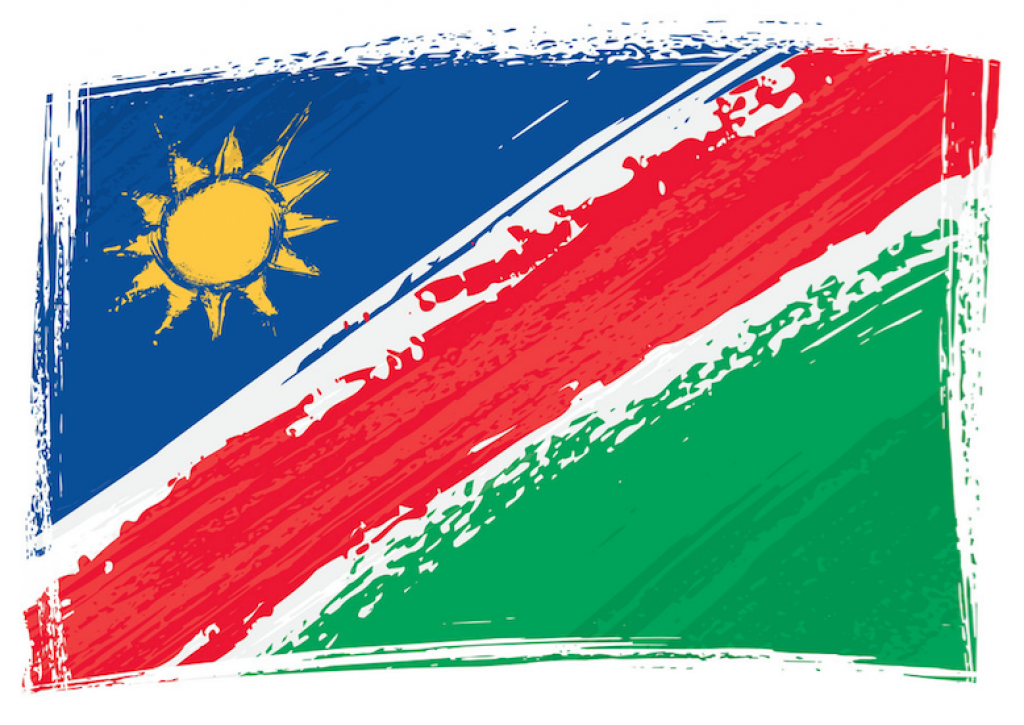
Google any of the recent headline-making protests anywhere in the world and you’ll see images of many demonstrators waving their national flags proudly or in anger. As political protests have gripped various countries around the world, anyone with a newsfeed would have seen the flags of Chile, France, Iran, Iraq, India, Lebanon, Peru, Sudan, to […]
Culture, Performance and the Origins of Political Trust
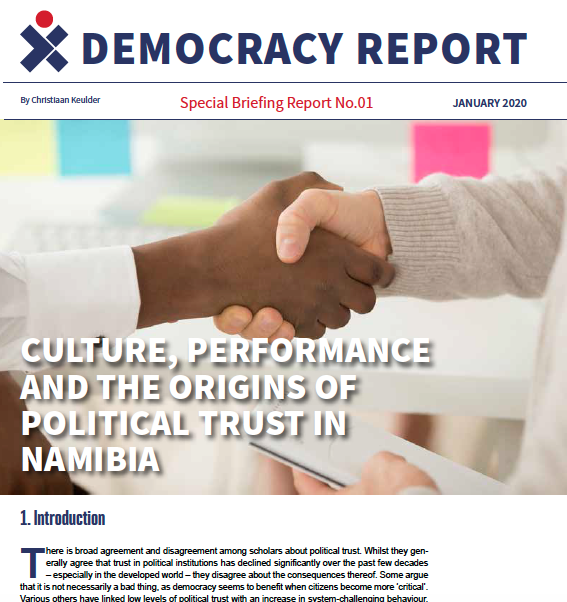
This paper looks at the origins of political trust in Namibia by examining two contending theories for explaining political trust: cultural and institutional. The relative importance of cultural and institutional factors in predicting political trust is tested by means of a multiple linear regression model, using the most recent data that was collected during Round […]
Why does two-thirds matter?
Swapo has enjoyed a two-thirds majority in the National Assembly since 1994 and in the National Council since 1993. In theory, if Swapo has two-thirds majorities in both the National Council and the National Assembly it can change the Constitution without the agreement of the other parties (Article 132). Since Independence there have been three […]
Access to Information is a Pervasive Local Problem, not only a Government Headache
Last year the IPPR sought to make an assessment of the state of access to information in Namibia. The principal means of doing this was by making a range of information requests to over 100 government bodies, public enterprises, private companies, and civil society organisations.
The issue of Access to Information was deemed appropriate because of the strong importance government attaches to making information available to the public, as expressed in the Harambee Prosperity Plan (HPP) and NDP5. For example, the HPP commits to providing the “means for access to public information/data and the enact(ing of) freedom of information laws by year two of Harambee” (2017/18).Complementing the HPP is NDP5, which in its executive summary states: “Good governance, responsive institutions and an engaged citizenry are the bedrock of democracy and sustainable development.”
The research report and its findings provide an opportunity for government and other sectors of Namibian society to identify weak points and best practices in the release of information and therefore move towards the NDP5 aim of “universal access to information”.
In the light of the above, it is disappointing that the Minister of Information and Communication Technology, Hon. Tjekero Tweya, chose to issue a blanket condemnation of the Access Denied report by claiming it was “devoid of any truth” and that IPPR has a “malicious agenda”.
Upholding Electoral Integrity

A guide to mitigating risk in the electoral cycle published by IPPR and HSF
Regional & Local Elections
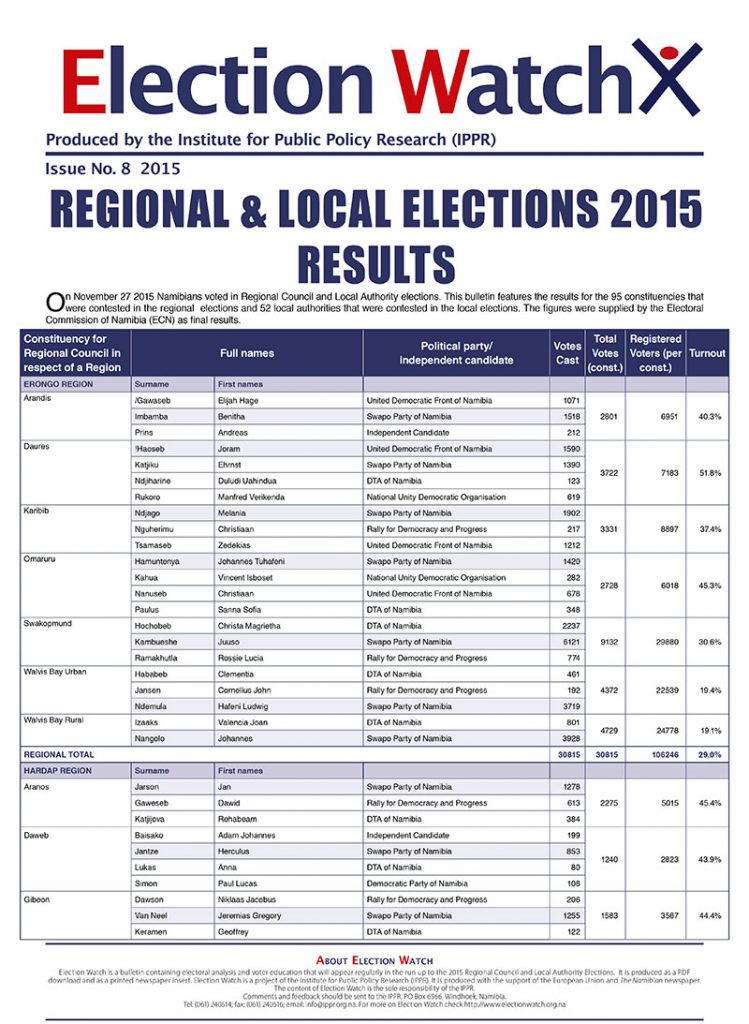
All the results for the local and regional elections held on November 27 2015
A Thorn in the Flesh for Gender Equality
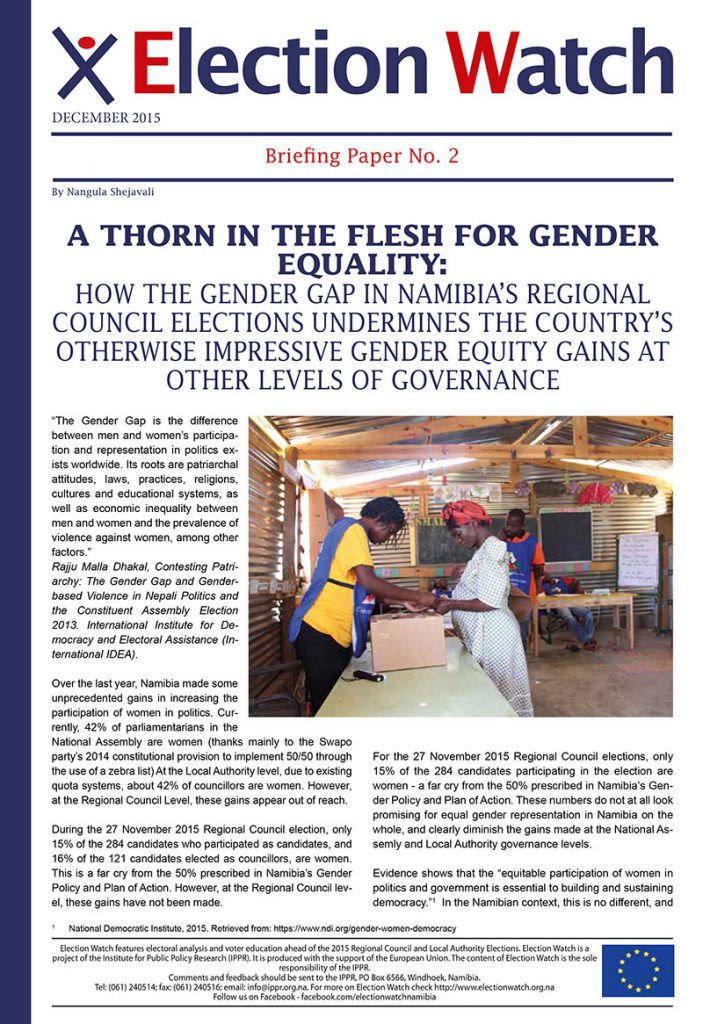
A briefing paper looking at how the gender gap in the regional councils undermines Namibia’s gender equallity efforts
Frequently Asked Questions
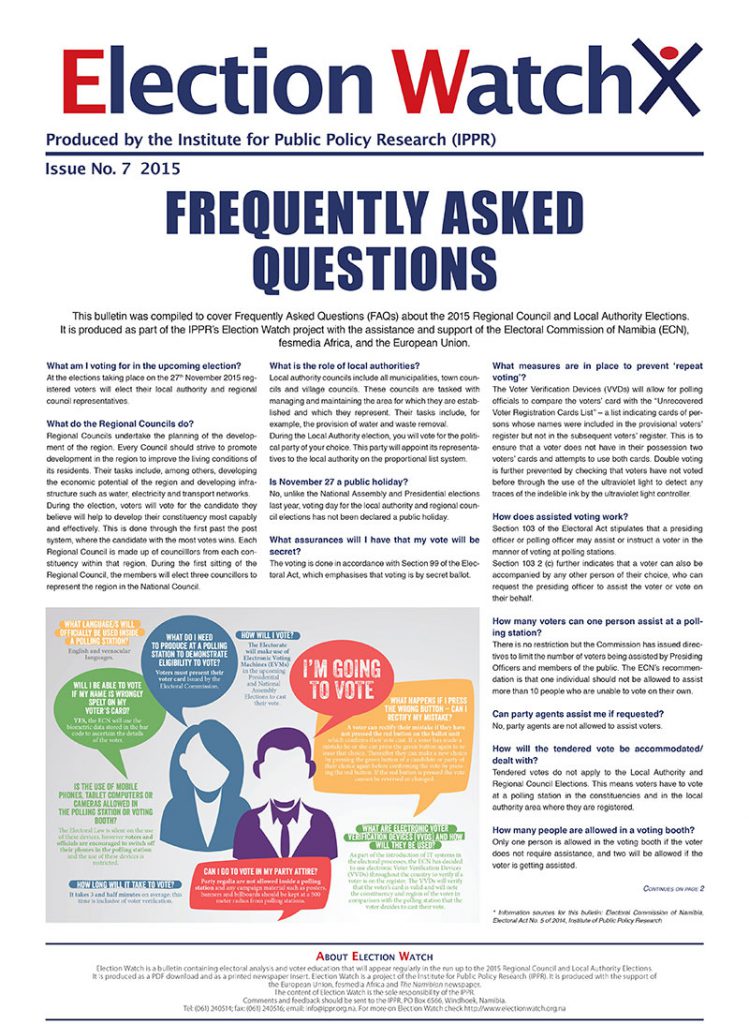
Key information for voters ahead of the Nov 27 local and regional elections
Know Your Country
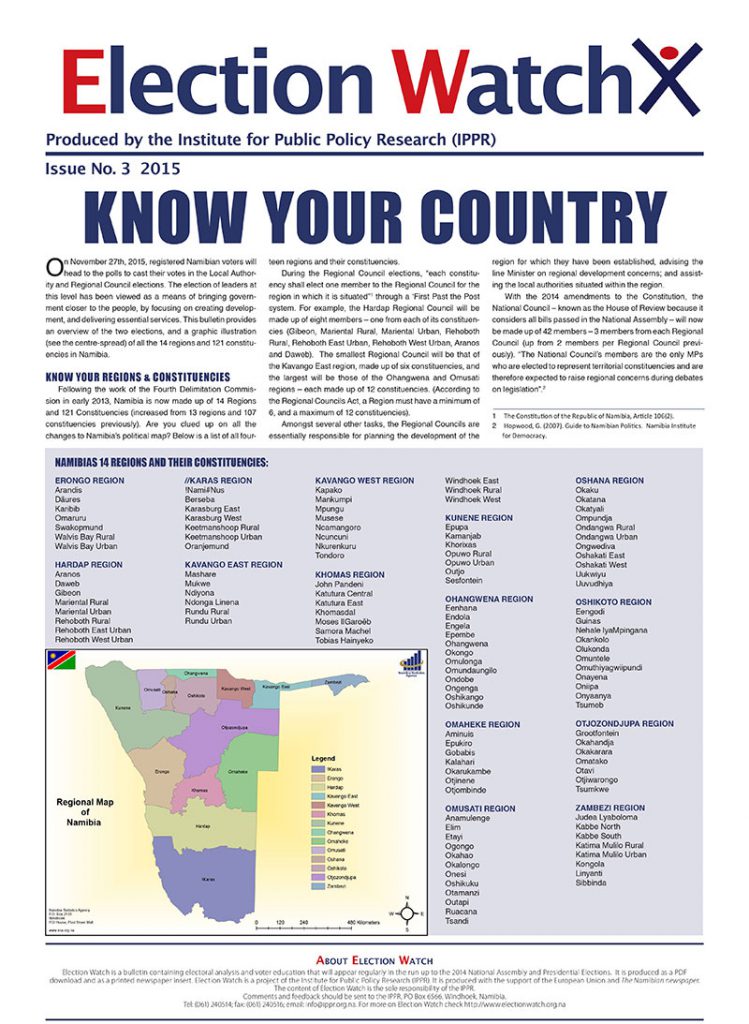
This bulletin includes maps and lists of all constituencies, towns and villages
Technology & the Upcoming Elections
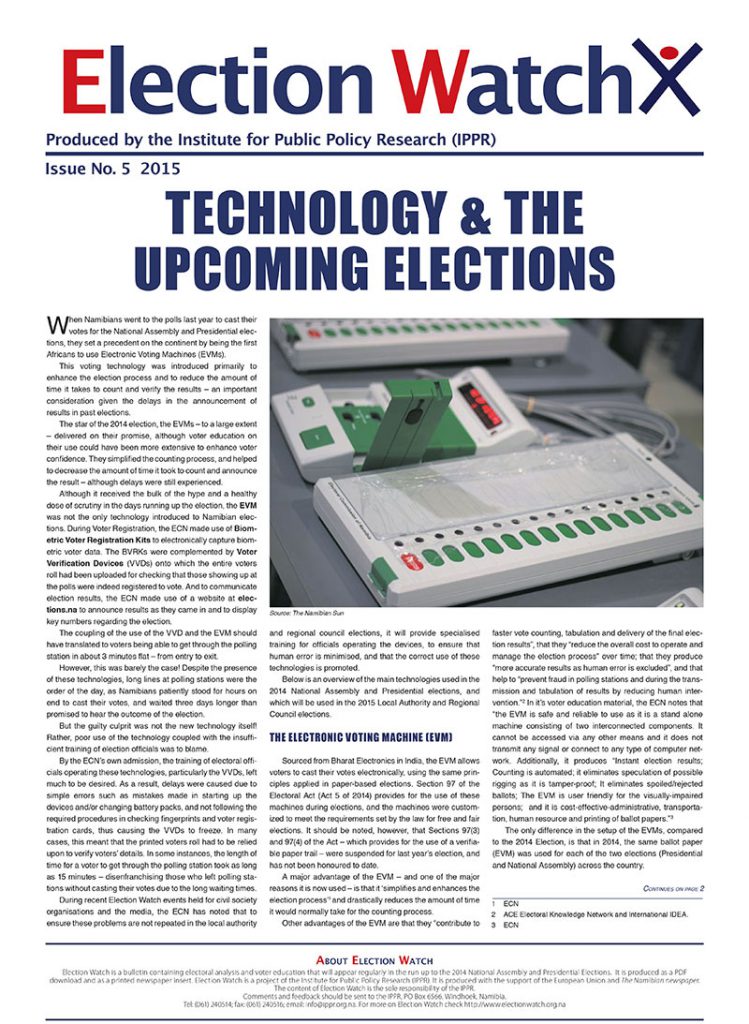
A look at how technology will be used in the local and regional elections

